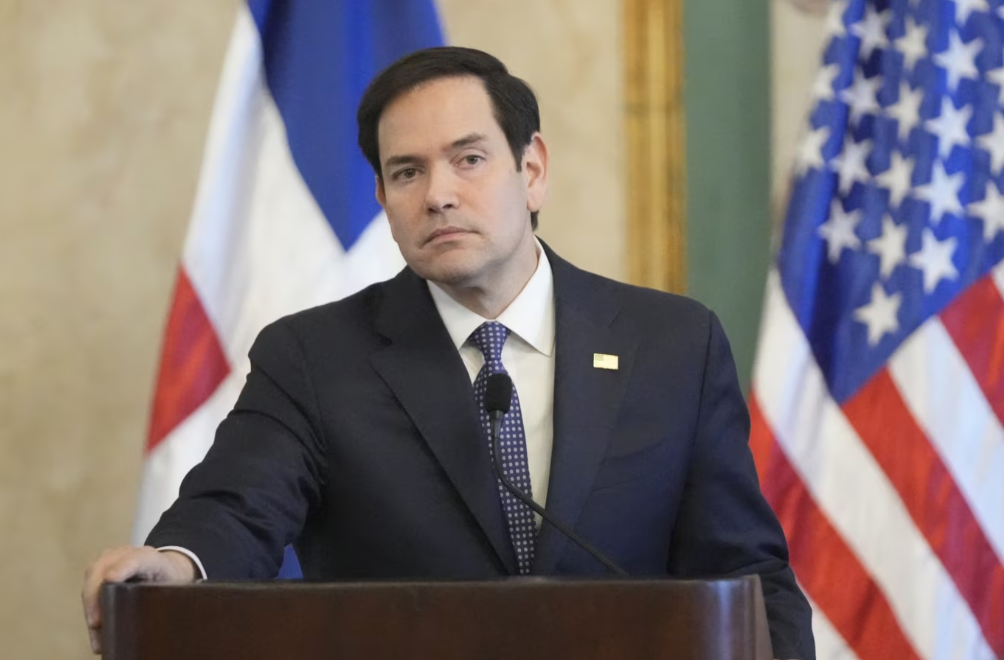
U.S. Secretary of State Marco Rubio gives a joint news conference at the National Palace in Santo Domingo, Dominican Republic, Feb. 6, 2025.
Newly appointed U.S. Secretary of State Marco Rubio is set to embark on his first official foreign trip, which will include stops in Panama, Guatemala, El Salvador, Costa Rica and the Dominican Republic. The trip is significant, as it marks the first foreign engagement for Rubio in his new role and signals President Donald Trump’s foreign policy priorities on Central America.
For Rubio, the visits might look a bit like returning home. His parents immigrated from Cuba to the United States in 1956 during the regime of Fulgencio Batista, two and a half years before Fidel Castro ascended to power with the Cuban Revolution.
Rubio has claimed that they fled the communist regime and has long shown animosity toward the country. Born in 1971 in Miami, Rubio rose to a seat in the U.S. Senate and has been regarded as the voice of U.S. policy on Latin America.
Second, the trip comes as Trump has made stemming migration to the U.S. a top priority. Rubio has explicitly stated that his diplomatic efforts will center on “stopping illegal and destabilizing migration” and negotiating the repatriation of undocumented migrants. As recently as Jan. 27, under Trump’s threat of tariffs and sanctions, Colombia’s president agreed to accept migrant flights, including on military aircraft. Rubio’s discussions will likely involve fostering law enforcement and economic cooperation with Central American nations, particularly Guatemala, El Salvador and Honduras, which are significant sources of migration.
The U.S. aim is to address the root causes of migration, such as violence, poverty and political instability, while also ensuring that these countries are willing to accept the return of migrants deported from the United States.
Mr. Rubio will also engage with regional leaders about collaborative efforts to combat drug trafficking and organized crime on legitimate trade routes, which not only threaten security but also disrupt economic activities and supply chains.
Third, Rubio’s discussions with his counterparts will likely emphasize the importance of enhancing supply chain resilience throughout the Western Hemisphere. By addressing supply chain inefficiencies, he hopes to facilitate smoother trade flows, which are vital for both U.S. and regional economies. This includes discussions on how to optimize logistics and transportation networks to better connect markets.
Rubio’s trip may also focus on encouraging investment in infrastructure that supports supply chains, such as ports, roads and rail systems. Improved infrastructure is essential for enhancing the efficiency of trade and logistics, which is a priority for both the U.S. and its Central American partners.
Finally, the trip will likely include discussions on mitigating the influence of external powers, particularly that of China. For example, the Trump administration argues that Beijing could use ports controlled by Chinese companies to turn the Panama Canal into a “choke point” against the U.S. Rubio echoed those concerns during his confirmation hearing, arguing that potential Chinese control of the Panama Canal threatens U.S. national and economic security.
What’s more, Mr. Rubio has previously highlighted concerns about Chinese investment in Central America and their implications for U.S. national security. He believes that strengthening ties with Latin American countries can help counterbalance this influence and ensure that supply chains remain aligned with U.S. interests.
China will not be at the table during Rubio’s visit, but it seems it will be everywhere when Rubio talks with regional leaders. Panama is one of the closest allies of the United States in Latin America, but Trump started saying in December that he wants to take the canal back.
China has denied any interference in the operations of the canal. A Foreign Ministry spokesperson recently said that China will as always respect Panama’s sovereignty over the Canal and recognizes the canal as a permanently neutral international waterway.
The robust economic and trade relations between China and Central American countries is the result of both long-time U.S. neglect of the region and China’s proactive policy approaches that benefit local people and society. Even with Trump’s coercive measures, such as huge tariffs and travel bans, countries might back down once, but ongoing resistance and rebellions will be powerful when the U.S. overreaches.
Rubio’s trip to Central America will focus on addressing mass migration, enhancing border security and fostering regional cooperation to tackle the underlying issues driving migration. His approach reflects the Trump administration’s commitment to a stringent immigration policy, while seeking to engage constructively. The trip also reflects the Trump administration’s strategic vision for the Western Hemisphere under which the United States should continue to be at the center of power. The U.S. will reinforce its regional influence by strengthening ties with Latin American countries but excluding China.
Rome was not built in a day but rose incrementally. Likewise, Latin America has changed incrementally and is not what it used to be. As the Global South awakens, Trump’s “America first” concept will not be tolerated.